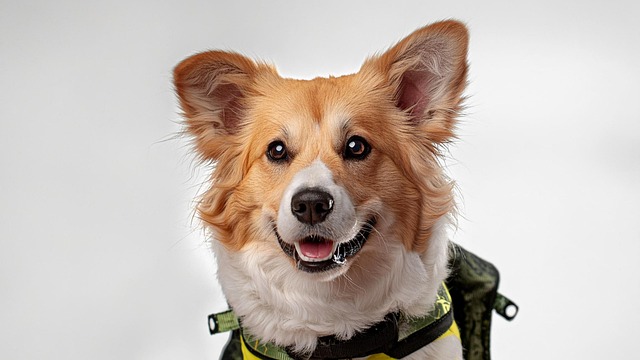
What vitamin is good for dogs' skin
Seeing your dog constantly scratch or noticing dry, flaky skin can make you wonder if a simple vitamin might be the solution.
The moment puppies enter the world marks one of the most critical periods in their lives, yet many new dog owners underestimate just how vital those first few hours truly are. Unlike human babies who can cry to communicate distress, newborn puppies rely entirely on their caretakers to recognize and respond to their needs immediately. This vulnerability makes immediate care for newborn puppies not just important—it's often the difference between healthy development and serious complications that can affect them for life.
Professional breeders and veterinary behaviorists have long recognized that the first 24 hours after birth set the foundation for everything from immune system development to future social behavior. During this window, puppies are adjusting to breathing air instead of receiving oxygen through the umbilical cord, regulating their body temperature outside the womb, and beginning the crucial process of receiving colostrum—the antibody-rich first milk that provides essential immune protection.
When puppies are born, your immediate priority should be ensuring clear airways. Gently wipe away any mucus or fluid from their nose and mouth using a clean, soft cloth. If a puppy seems to have difficulty breathing, hold them securely with their head pointing downward and gently swing them in a controlled arc—this helps fluid drain from their lungs. Some experienced breeders describe this as the "puppy swing," and while it might look alarming, it's a time-tested technique that can save lives when done correctly.
Temperature regulation becomes your next critical concern. Newborn puppies cannot generate their own body heat effectively, making them extremely susceptible to hypothermia. Immediately after clearing their airways, dry each puppy thoroughly with clean towels, paying special attention to their head and body. The ideal ambient temperature for newborn puppies should be maintained between 85-90°F for the first week of life. Many American households keep their thermostats much lower, so you'll need supplemental heat sources like heating pads designed for pets or heat lamps positioned safely away from direct contact.
While handling newborns, take a moment to perform a quick physical assessment. Look for obvious congenital issues such as cleft palates, which appear as splits in the roof of the mouth, or limb deformities. Check that each puppy has all four legs, properly formed paws, and that their eyes and ears appear normal, even though they won't open for several days. In the United States, veterinary care for congenital issues is readily available, but early identification allows for better planning and treatment outcomes.
First steps after puppies are born should always include facilitating the natural bonding process between mother and offspring. This isn't just about emotional connection—it's about survival. Guide each puppy to their mother's nipples, ensuring they latch properly and begin nursing within the first hour of life. Some mothers, especially first-time mothers, may seem uncertain about what to do. Gentle encouragement and positioning can help, but avoid forcing interactions that cause stress to either mother or puppies.
The mother dog's instinctive licking serves multiple purposes beyond cleaning. It stimulates circulation, encourages breathing, and promotes the elimination reflexes that puppies need to urinate and defecate. If the mother isn't licking her puppies adequately, you can gently stimulate their anal and genital areas with a warm, damp cloth to encourage elimination. This aspect of newborn puppy care tips often surprises new owners, but it's absolutely essential for proper development.
Creating a calm, quiet environment supports both maternal bonding and puppy development. Limit visitors during the first 48 hours, keep noise levels low, and maintain dim lighting. Many dogs in American households are used to busy family environments, but the stress of constant activity can interfere with nursing and bonding. The mother needs to feel secure to produce adequate milk and provide proper care.
Post-birth puppy bonding extends beyond the mother-puppy relationship. Gentle, brief handling by humans during the first few days begins the socialization process that's crucial for puppies destined to become family pets. However, this handling should be minimal and purposeful—primarily for health checks and weight monitoring. Excessive handling can stress both mother and puppies, potentially interfering with nursing and bonding.
Recognizing signs of distress in newborn puppies requires careful observation. Healthy puppies should be warm to the touch, nurse regularly, and sleep peacefully between feeding sessions. Warning signs include continuous crying, cool body temperature, difficulty breathing, or inability to nurse. Puppies that seem weak, unresponsive, or significantly smaller than their littermates may require immediate veterinary attention.
The "fading puppy syndrome" represents one of the most serious challenges in newborn puppy care. Puppies affected by this condition may appear normal at birth but gradually become weaker over the first few days. They might cry more than usual, feel cold to the touch, or struggle to nurse effectively. In the United States, emergency veterinary services are available 24/7 in most areas, and many veterinarians provide specific guidance for breeders and new puppy owners during this critical period.
Weight monitoring provides valuable insight into puppy health during those crucial first days. Healthy puppies should gain weight daily, doubling their birth weight within the first week. A digital scale that measures in grams or ounces allows for precise tracking. Puppies that lose weight or fail to gain appropriately may indicate nursing difficulties, health problems, or insufficient milk production from the mother.
Environmental considerations play a significant role in supporting long-term puppy health and behavior development. The whelping area should be easily cleanable, draft-free, and large enough for the mother to move comfortably while keeping puppies contained. Many American dog owners use specially designed whelping boxes, but a large cardboard box with low sides can work effectively for smaller breeds. The key is providing security for the mother while allowing easy access for monitoring and care.
Understanding that immediate care rituals shape future behavior helps put these early interventions into perspective. Puppies that receive proper care during their first days of life typically develop stronger immune systems, better stress tolerance, and more confident personalities. The gentle handling, consistent warmth, and security provided during this period contribute to their ability to bond with humans and adapt to family life later.
The investment in proper immediate care for newborn puppies pays dividends throughout their lives. Dogs that receive excellent early care often exhibit better social skills, reduced anxiety, and stronger physical health as adults. For American families planning to welcome these puppies into their homes, this foundation of care represents the beginning of a lifelong relationship built on trust, health, and proper development from the very first moments of life.

Seeing your dog constantly scratch or noticing dry, flaky skin can make you wonder if a simple vitamin might be the solution.

If you’re a new dog parent in the US—maybe you’re sitting on your Portland apartment couch, staring at your 1-year-old Australian Shepherd

If you’re a new dog parent in the US—maybe you’re sitting on your Atlanta apartment floor, holding your 6-week-old Beagle puppy, Daisy, who’s curled up in your lap

If you’re a new dog parent in the US—maybe you’re standing in your Denver apartment’s kitchen, staring at a bag of high-quality puppy kibble and a bottle

Seeing your puppy grow daily is amazing, and it’s natural to want to give them every advantage, including supplements.

Brown stains on white dog fur aren’t just unsightly—they can also hint at underlying issues like tear duct irritation or poor grooming habits, which matter even more when you’re following local pet care laws.